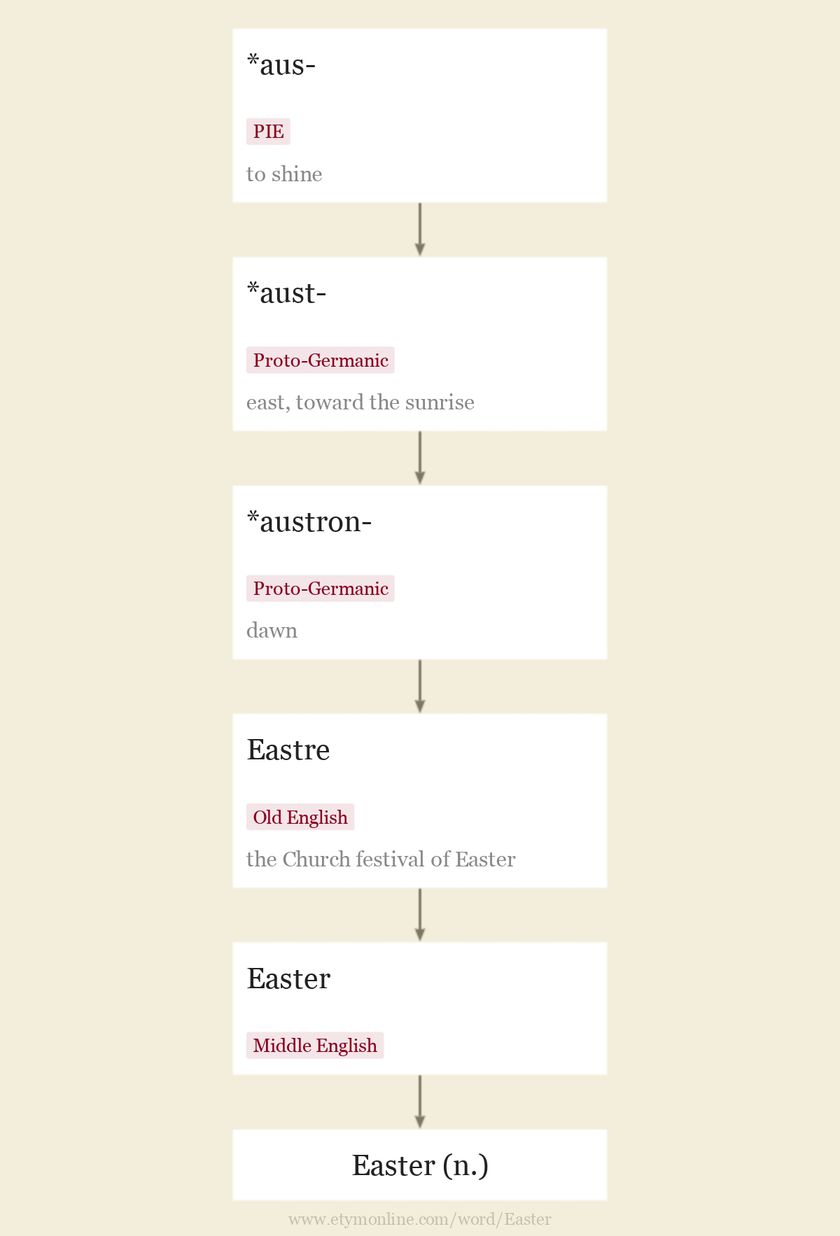Easter n.
Old English Easterdæg, from Eastre (Northumbrian Eostre), from Proto-Germanic *austron-, "
Bede says Anglo-Saxon Christians adopted her name and many of the celebratory practices for their Mass of Christ's resurrection. Almost all neighboring languages use a variant of Latin Pascha to name this holiday (see paschal).
Easter egg is attested by 1825, earlier pace egg (1610s). Easter bunny is attested by 1904 in children's lessons; Easter rabbit is by 1888; the paganish customs of Easter seem to have grown popular c. 1900; before that they were limited to German immigrants.
If the children have no garden, they make nests in the wood-shed, barn, or house. They gather colored flowers for the rabbit to eat, that it may lay colored eggs. If there be a garden, the eggs are hidden singly in the green grass, box-wood, or elsewhere. On Easter Sunday morning they whistle for the rabbit, and the children imagine that they see him jump the fence. After church, on Easter Sunday morning, they hunt the eggs, and in the afternoon the boys go out in the meadows and crack eggs or play with them like marbles. Or sometimes children are invited to a neighbor's to hunt eggs. [Phebe Earle Gibbons, "Pennsylvania Dutch," Philadelphia, 1882]

updated on April 15, 2022